Before the 18th century








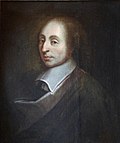






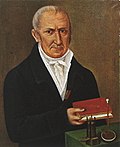





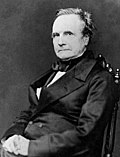
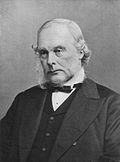


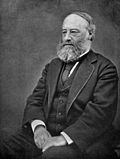
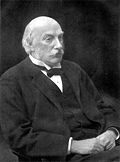
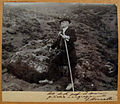




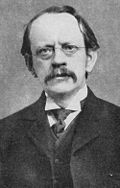

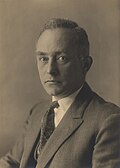











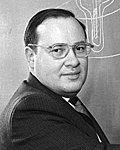





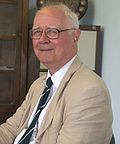
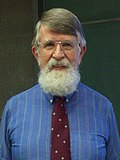
















- Hildegard of Bingen (1098–1179): also known as Saint Hildegard and Sibyl of the Rhine, was a German Benedictine abbess. She is considered to be the founder of scientific natural history in Germany [2]
- Robert Grosseteste (c. 1175–1253): Bishop of Lincoln, he was the central character of the English intellectual movement in the first half of the 13th century and is considered the founder of scientific thought in Oxford. He had a great interest in the natural world and wrote texts on the mathematical sciences of optics, astronomy and geometry. He affirmed that experiments should be used in order to verify a theory, testing its consequences and added greatly to the development of the scientific method. [3]
- Albertus Magnus (c. 1193–1280): patron saint of scientists in Catholicism who may have been the first to isolate arsenic. He wrote that: "Natural science does not consist in ratifying what others have said, but in seeking the causes of phenomena." Yet he rejected elements of Aristotelianism that conflicted with Catholicism and drew on his faith as well as Neo-Platonic ideas to "balance" "troubling" Aristotelian elements. [note 1] [4]
- Roger Bacon (1219–c. 1292): medieval English polymath, philosopher, scientist, theologian and Franciscan friar who placed considerable emphasis on the study of nature through empiricism. Intertwining his Catholic faith with scientific thinking, Roger Bacon is considered one of the greatest polymaths of the medieval period.
- Jean Buridan (1300–1358): French philosopher and priest. One of his most significant contributions to science was the development of the theory of impetus, that explained the movement of projectiles and objects in free-fall. This theory gave way to the dynamics of Galileo Galilei and for Isaac Newton's famous principle of inertia.
- Thomas Bradwardine (1300–1349): Archbishop of Canterbury, mathematician, and physicist who helped develop the mean speed theorem. He was one of the Oxford Calculators.
- Albert of Saxony (1320–1390): German philosopher and mathematician [5] known for his contributions to logic and physics. He was bishop of Halberstadt from 1366 until his death.
- Nicole Oresme (c.1323–1382): Theologian and bishop of Lisieux, he was one of the early founders and popularizers of modern sciences. One of his many scientific contributions is the discovery of the curvature of light through atmospheric refraction. [6]
- Nicholas of Cusa (1401–1464): Catholic cardinal and theologian who made contributions to the field of mathematics by developing the concepts of the infinitesimal and of relative motion. His philosophical speculations also anticipated Copernicus' heliocentric world-view. [7]
- Otto Brunfels (1488–1534): A theologian and botanist from Mainz, Germany. His Catalogi virorum illustrium is considered to be the first book on the history of evangelical sects that had broken away from the Catholic Church. In botany his Herbarum vivae icones helped earn him acclaim as one of the "fathers of botany". [8]
- William Turner (c.1508–1568): sometimes called the "father of English botany" and was also an ornithologist. He was arrested for preaching in favor of the Reformation. He later became a Dean of Wells Cathedral, but was expelled for nonconformity. [9]
- Ignazio Danti (1536–1586): As bishop of Alatri he convoked a diocesan synod to deal with abuses. He was also a mathematician who wrote on Euclid, an astronomer, and a designer of mechanical devices. [10]
- Christopher Clavius (1538–1612): Jesuit German mathematician, head of mathematicians at the Collegio Romano , and astronomer who was a member of the Vatican commission that accepted the Gregorian calendar. Wrote one of the most influential astronomy textbooks of his time.
- John Napier (1550–1617): Scottish mathematician, physicist, and astronomer, best known as the discoverer of logarithms and inventor of Napier's bones. He was a fervent Protestant and published The Plaine Discovery of the Whole Revelation of St. John (1593), which he considered his most important work. The work occupies a prominent place in Scottish ecclesiastical history. [11]
- Francis Bacon (1561–1626): Considered among the fathers of empiricism and is credited with establishing the inductive method of experimental science via what is called the scientific method today. [12] [13]
- Galileo Galilei (1564–1642): Italian astronomer, physicist, engineer, philosopher, and mathematician who played a major role in the Scientific Revolution during the Renaissance. [14] [15]
- Laurentius Gothus (1565–1646): A professor of astronomy and Archbishop of Uppsala. He wrote on astronomy and theology. [16]
- Johannes Kepler (1571–1630): Prominent astronomer of the Scientific Revolution, discovered Kepler's laws of planetary motion.
- Marin Mersenne (1588–1648): French polymath, best known for Mersenne primes and Mersenne's laws describing harmonics, referred to as the "father of acoustics". He was an ordained Catholic priest, a member of the ascetic Minim religious order, and wrote and lectured on theology and philosophy.
- Pierre Gassendi (1592–1655): Catholic priest who tried to reconcile Atomism with Christianity. He also published the first work on the Transit of Mercury and corrected the geographical coordinates of the Mediterranean Sea. [17]
- Anton Maria of Rheita (1597–1660): Capuchin astronomer. He dedicated one of his astronomy books to Jesus Christ, a "theo-astronomy" work was dedicated to the Blessed Virgin Mary, and he wondered if beings on other planets were "cursed by original sin like humans are." [18]
- Juan Lobkowitz (1606–1682): Cistercian monk who did work on Combinatorics and published astronomy tables at age 10. He also did works of theology and sermons. [19]
- John Wallis (1616–1703): English clergyman and mathematician, partially credited for the development of infinitesimal calculus. Introduced the symbol ∞ to represent the concept of infinity. He also wrote on theology, logic, grammar, and philosophy.
- Seth Ward (1617–1689): Anglican Bishop of Salisbury and Savilian Chair of Astronomy from 1649 to 1661. He wrote Ismaelis Bullialdi astro-nomiae philolaicae fundamenta inquisitio brevis and Astronomia geometrica. He also had a theological/philosophical dispute with Thomas Hobbes and as a bishop was severe toward nonconformists. [20]
- Blaise Pascal (1623–1662): Jansenist thinker; [note 2] well known for Pascal's law (physics), Pascal's theorem (math), Pascal's calculator (computing) and Pascal's Wager (theology). [21]
- John Wilkins, FRS (1614–1672) was an Anglican clergyman, natural philosopher and author, and was one of the founders of the Royal Society. He was Bishop of Chester from 1668 until his death.
- Francesco Redi (1626–1697): Italian physician and Roman Catholic who is remembered as the "father of modern parasitology".
- Robert Boyle (1627–1691): Prominent scientist and theologian who argued that the study of science could improve glorification of God. [22] [23] A strong Christian apologist, he is considered one of the most important figures in the history of Chemistry.
- Isaac Barrow (1630–1677): English theologian, scientist, and mathematician. He wrote Expositions of the Creed, The Lord's Prayer, Decalogue, and Sacraments and Lectiones Opticae et Geometricae. [24]
- Francesco Lana de Terzi (1631–1687): Italian Jesuit priest, mathematician, naturalist and aeronautics pioneer. He first sketched the concept for a vacuum airship and has been referred to as the father of aeronautics for his pioneering efforts.
- Nicolas Steno (1638–1686): Lutheran convert to Catholicism, his beatification in that faith occurred in 1987. As a scientist he is considered a pioneer in both anatomy and geology, but largely abandoned science after his religious conversion. [25]
- Isaac Newton (1643–1727): Prominent scientist during the Scientific Revolution. Physicist, discoverer of gravity. [26]